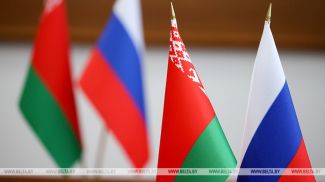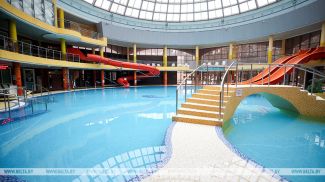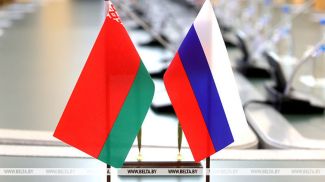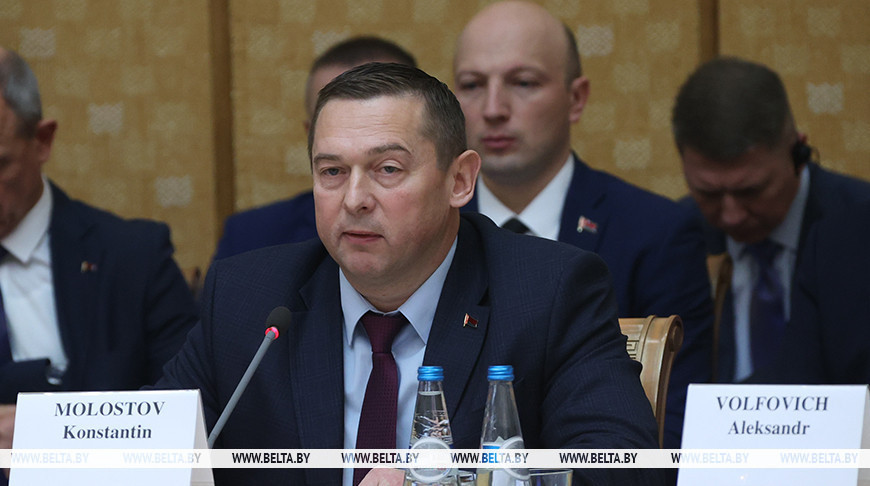
MINSK, 15 November (BelTA) – Instead of a constructive dialogue, the EU states bordering Belarus have chosen the path of border militarization, confrontation and neglect of border cooperation, drastic measures to solve migration problems, Chairman of the Belarusian State Border Committee Konstantin Molostov said at the international conference in Minsk to discuss regional cooperation in combating illegal migration, BelTA has learned.
Konstantin Molostov stressed that the Belarusian border service is very eager to have a belt of good-neighborliness along the border in all areas of cooperation. "We strive to ensure that the situation in the border space is stable and predictable, and the border cooperation is respectful and mutually beneficial," he said.
Konstantin Molostov explained the dynamics of migration processes in recent years. For example, in 2014, there was a serious migration flow of migrants from Asia and Africa via the border. The increase in illegal migrant activity in 2018 was caused by the unstable military-political and socio-economic situation in the Middle East and Africa. Thanks to the measures taken during that period, including preventive measures and also thanks to the interaction between the Belarusian State Border Committee and the border agencies of the neighboring states and international organizations, migration tensions in the border areas were reduced significantly, Konstantin Molostov stated. As a result, the flows of illegal migrants reduced in 2019-2020.
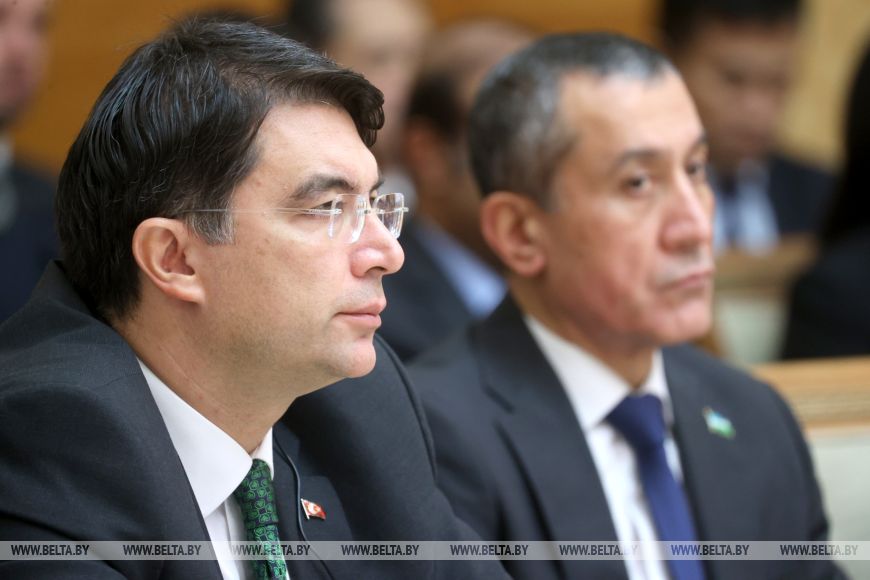
Konstantin Molostov stressed that the Belarusian border service is very eager to have a belt of good-neighborliness along the border in all areas of cooperation. "We strive to ensure that the situation in the border space is stable and predictable, and the border cooperation is respectful and mutually beneficial," he said.
Konstantin Molostov explained the dynamics of migration processes in recent years. For example, in 2014, there was a serious migration flow of migrants from Asia and Africa via the border. The increase in illegal migrant activity in 2018 was caused by the unstable military-political and socio-economic situation in the Middle East and Africa. Thanks to the measures taken during that period, including preventive measures and also thanks to the interaction between the Belarusian State Border Committee and the border agencies of the neighboring states and international organizations, migration tensions in the border areas were reduced significantly, Konstantin Molostov stated. As a result, the flows of illegal migrants reduced in 2019-2020.
"Since 2021, we have seen a sharp increase in the migration of foreign citizens seeking asylum in the EU countries. The root reason of this is not related to Belarus. It is caused by the escalation of the situation in the hotspots of military, political and economic instability in Asia and Africa. The previously declared readiness of the EU countries to accept refugees from disadvantaged countries contributed to the growth of migration flows," he said.
Since the migration situation began to escalate, the committee has repeatedly urged the EU countries to engage in constructive dialogue and resume cross-border cooperation, including on issues of illegal migration. However, these appeals and initiatives went unheeded. The head of the committee emphasized that Belarus had to counter the problem alone, making considerable efforts.
"Unfortunately, instead of constructive dialogue, the neighboring states of the European Union have chosen the path of border militarization, confrontation and neglect of border cooperation, and drastic measures to address emerging migration issues," Konstantin Molostov pointed out.
Instead of the search for ways to address the problem, the EU countries bordering Belarus have significantly increased the financial expenditures on creating the so-called “Iron Curtain”, on building engineering structures and barriers on the border, in addition to diplomatic obstacles, he said. For example, according to the statements of the Polish side, the cost of maintaining the wall on the border with Belarus may cost over €600 million. This is not only very expensive, but also ineffective and harmful.
The head of the State Border Committee also drew attention to the humanitarian aspect of the problem. After all, the border is crossed many by the most deprived persons. They can fully expect certain protection in accordance with the 1951 Convention relating to the Status of Refugees. However, even with regard to them, law enforcement officers of the neighboring countries use force and special means during detention and push them back to Belarus. Belarusian law enforcers check every such incident and record violations. Even in such conditions, the border service continues to protect the state border in compliance with international treaties and norms of humanitarian law, Konstantin Molostov said.
According to him, countering illegal migration is one of the priority areas of Belarus’ migration policy. The State Border Committee of Belarus takes an active part in its implementation.The focus is primarily on prevention, detection and suppression of its organized forms.
According to him, countering illegal migration is one of the priority areas of Belarus’ migration policy. The State Border Committee of Belarus takes an active part in its implementation.The focus is primarily on prevention, detection and suppression of its organized forms.

The head of the State Border Committee named a number of ways to address the problem of illegal migration. Among them is the development of dialogue platforms at the Ministry of Foreign Affairs and the State Border Committee through the institution of border commissioners, continued implementation of measures to counter organized forms of cross-border illegal activity, compliance by all parties to cross-border and border cooperation with their obligations in border security, international norms and humanitarian law, implementation of preventive and organizational measures to counter illegal migration in cooperation with national and international stakeholders.
In conclusion, the head of the State Border Committee said: “The problem of illegal migration can only be solved together. This solution is laid down in the universally recognized principles and norms of international law, and also agreements on border issues between Belarus and neighboring EU countries. The State Border Committee remains open to constructive cooperation, including on migration issues.”
In conclusion, the head of the State Border Committee said: “The problem of illegal migration can only be solved together. This solution is laid down in the universally recognized principles and norms of international law, and also agreements on border issues between Belarus and neighboring EU countries. The State Border Committee remains open to constructive cooperation, including on migration issues.”





